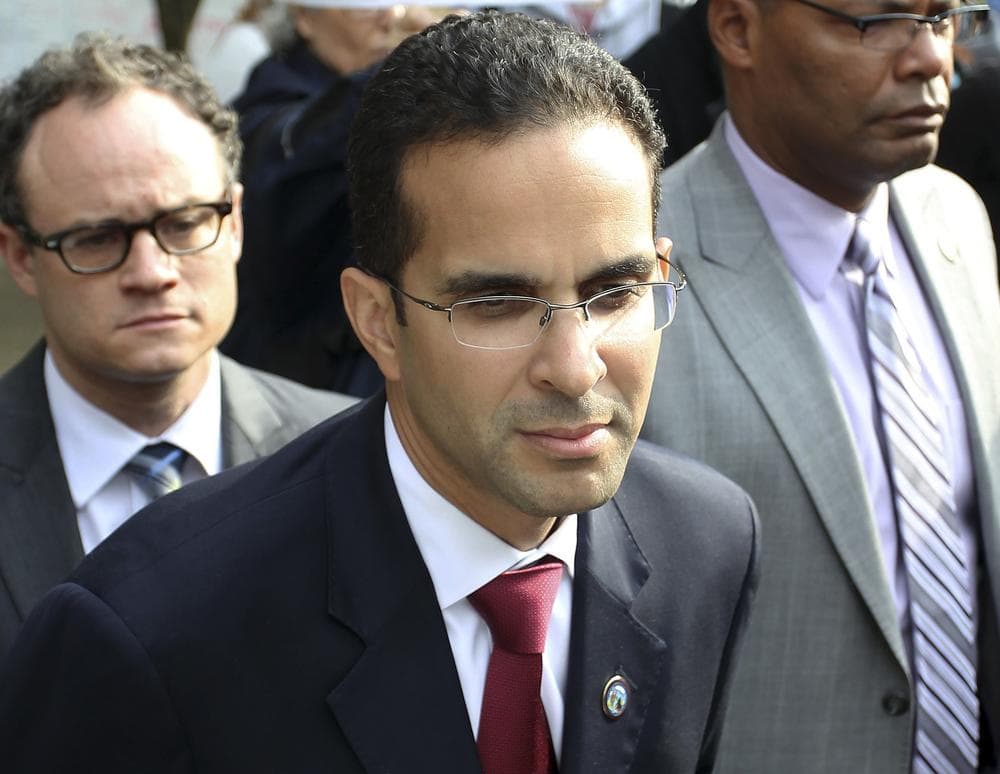Advertisement
Providence Takes On The 'Word Gap'
Resume
The city of Providence is launching a new initiative to take on "the word gap." The term refers to the number of words that a child hears during his or her first few years of life. It turns out that by the time they're four years old, children from higher income families hear 30-million more words than children from lower-income families.
What's so significant about that, you ask? According to research from the LENA Research Foundation (Language ENvironmental Analysis), a child's academic success is directly related to the amount of talk he or she hears from adults during those first years of life. The more words a child hears, the greater his chance for academic success will be.
With the help of a $5 million prize from the Bloomberg Philanthropies' Mayors Challenge, the city is launching "Providence Talks." The city will equip low-income families with small recording devices that can count the number of words a child hears each day. The families will get the results, and then receive coaching to help their kids hear more words — through things like read-aloud programs or events at local libraries and museums. It's the first time an entire city has tried to close "the word gap," and the question is, can it work?
Guests
Angel Taveras, mayor of Providence
Jill Gilkerson, director of child language research for the LENA Research Foundation
More
The Huffington Post, "Children need to hear approximately 21,000 words per day for their vocabularies to develop at an appropriate pace. But research has shown that children growing up in less affluent homes hear significantly fewer words each day than their peers in middle and high-income households. This word gap quickly adds up. In fact, by the time a child growing up in a low-income household reaches their fourth birthday, they will have heard 30 million fewer words than their peers in middle- and high-income households."
The Boston Globe, "For Providence, the needs are pressing: as Mayor Angel Taveras and schools Superintendent Susan Lusi explained in a video pitch for the program, only one in three children in the city enter school at the appropriate literacy benchmarks, and closing the word gap in disadvantaged families is seen as an efficient, early way to change that. Taveras told me that early intervention appeals to him as a graduate of the Head Start pre-kindergarten program. (He’s also closely watching the linguistic progress of his own 14-month-old daughter.) 'I really wanted to do something on early childhood education because of what I went through,” he said. “I felt this was a big issue we could attack on a citywide level.'"
LENA, "With few exceptions, the more parents talked to their children, the faster the children’s vocabularies were growing and the higher the children’s IQ test scores at age three and later."
This segment aired on April 9, 2013.